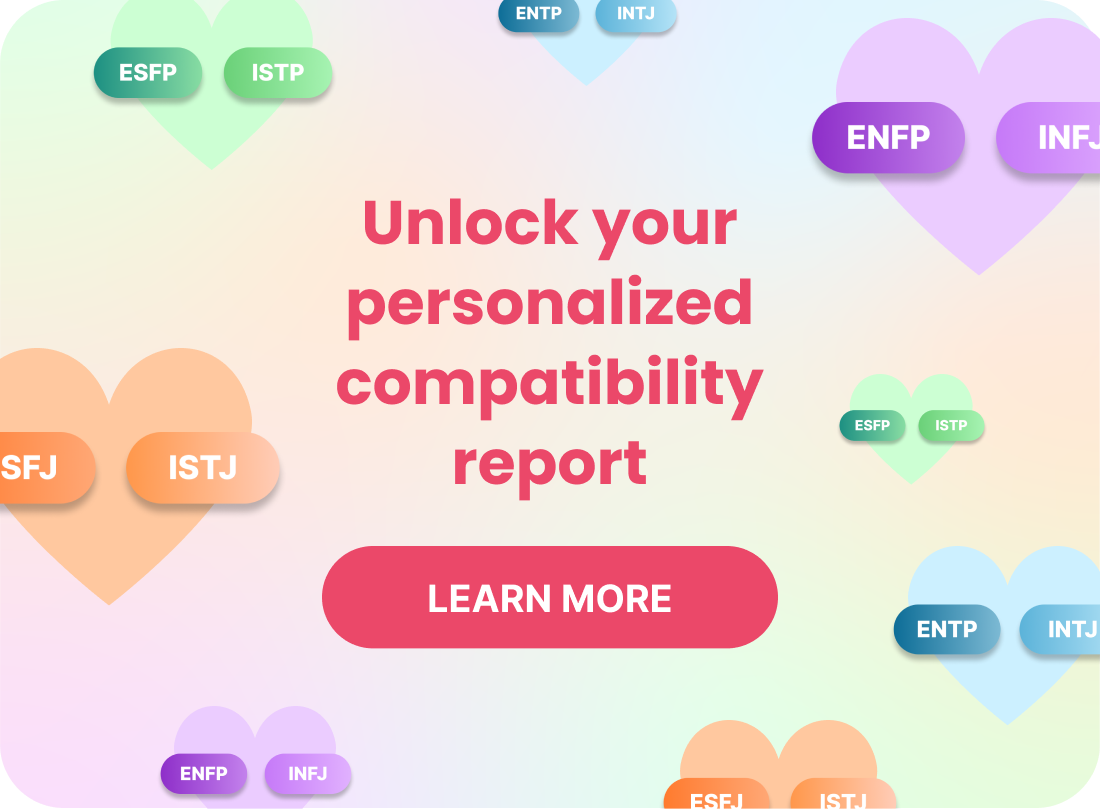7 Signs You Are Emotionally Detached
So first, what does it actually mean to be emotionally detached? It’s a state where someone is disconnected from their own feelings and/or those of others. As you may have realized, it isn’t always easy to tell when someone is emotionally detached. We all have the capacity to disconnect from emotions at times, sometimes to our benefit. However, when emotional detachment becomes an ongoing pattern or a natural response to everyday situations, it can cause difficulty in forming meaningful relationships.

So first, what does it actually mean to be emotionally detached? It’s a state where someone is disconnected from their own feelings and/or those of others. As you may have realized, it isn’t always easy to tell when someone is emotionally detached. We all have the capacity to disconnect from emotions at times, sometimes to our benefit. However, when emotional detachment becomes an ongoing pattern or a natural response to everyday situations, it can cause difficulty in forming meaningful relationships.
Short-term emotional detachment
First, there are different types of emotional detachment. On the one hand, we have short-term emotional detachment, which is a natural coping mechanism used to protect ourselves from people and situations that cause us distress. By detaching ourselves emotionally, we can distance ourselves from situations or people that are negatively impacting our lives and gain the necessary perspective to set boundaries. This can help to reduce stress and anxiety levels. Essential, emotional detachment can protect your mental health and well-being when used in the right circumstances.
For example, someone going through a divorce may experience short-term emotional detachment as a way to cope with the pain of the situation. Processing the emotions all at once might be too overwhelming, and emotional detachment can allow the individual to come to terms with the situation over time. Another example is an emergency responder who experiences emotional detachment when on the job to remain focused, see the situation objectively, and perform necessary duties.
It’s clear from both of these examples why emotional detachment can be beneficial in certain situations. However, while temporarily emotionally detaching from a difficult situation can be helpful, it’s important to accept and process our emotions at some point to move through the situation and heal. Pushing our emotions away and never revisiting them can be damaging in the long run.
It’s similar to pressing pause while watching a movie. Temporary emotional detachment allows us to hit the pause button on our emotions, giving ourselves a break to collect our thoughts, gain clarity, and process our emotions later. Ultimately, we have limited resources, such as attention and energy. Temporary emotional detachment can be our body’s way of saying, “I need to focus on something else right now.” How it plays out, in the long run, depends on whether or not we hit the play button afterward.
Long-term emotional detachment
Long-term emotional detachment is a different story. This type of emotional detachment is often characterized by a reduced or limited ability to form and maintain meaningful emotional connections with other people. People experiencing long-term emotional detachment often feel a sense of numbness or disconnection. It is important to note that long-term emotional detachment differs from temporarily withdrawing or taking time for oneself, as it typically involves ongoing disengagement from emotional experiences over an extended period.
There can be various factors that contribute to long-term emotional detachment. Some possible causes include past trauma or abuse, significant life stressors, chronic loneliness, unresolved emotional issues, or certain mental health conditions such as depression, anxiety, or personality disorders. It can also be a learned behavior stemming from upbringing, cultural factors, or role models. Pinpointing the cause of long-term emotional detachment can be difficult and often requires help from a mental health professional.
Again, long-term emotional detachment is often a coping mechanism. By learning to keep others at a distance, people are able to protect themselves from the potential hurt that can come with forming meaningful relationships. It’s like a protective shield that aims to prevent emotional harm and create a sense of safety. Emotional detachment can also be an attempt to maintain control of a situation. Avoiding deep connections and keeping feelings at bay can be seen as a way of maintaining autonomy and feeling in control of one’s behaviors.
While emotional detachment can serve as a short-term coping strategy, it can severely impact people’s quality of life in the long run. If you or someone you know is experiencing long-term emotional detachment and it is causing distress or interfering with your daily life, it’s advisable to seek professional help from a qualified mental health professional. They can provide guidance, support, and appropriate interventions to address the underlying causes to help individuals reconnect with their emotions and establish healthier connections with others.
7 signs of being emotionally detached
So, how can you tell if someone is emotionally detached? Here are seven signs to look out for, and to clarify, these examples are related to long-term emotional detachment.
1. A lack of empathy.
Empathy is the capacity to understand and identify with another person’s emotions. By definition, emotional detachment involves a degree of disconnection from your feelings or those of others. When people struggle to connect with and understand their own feelings, it can become challenging for them to relate to the emotions of others.
Furthermore, emotional detachment is associated with self-protective behaviors and a focus on self-preservation. When someone is so directing their attention inward, it means they are less likely to be tuned into the emotional needs of others. Empathy requires an open and receptive mindset, but emotional detachment can create a barrier that prevents individuals from being fully aware of how other people are feeling.
It’s important to note that while a lack of empathy can be a sign of emotional detachment, it does not necessarily mean that every emotionally detached person lacks empathy entirely. Emotional detachment exists on a spectrum, and individuals may vary in their capacity for empathy based on their personality, circumstances, and emotional state.
2. Difficulty maintaining meaningful relationships.
Having difficulty maintaining meaningful relationships is a sign of emotional detachment because healthy connections require emotional intimacy, empathy, vulnerability, and reciprocity. People who are emotionally detached tend to struggle with vulnerability and sharing personal aspects of themselves in relationships, resulting in a lack of closeness or intimacy.

Because emotional detachment can lead to a lack of responsiveness to other people’s feelings and needs, it makes it hard to build and sustain the mutual understanding and empathy that are key components of meaningful relationships. The emotionally detached person may seem distant or uninterested, which can cause feelings of neglect in a relationship.
Furthermore, they may also engage in behaviors that limit their ability to form relationships with others, such as avoiding social situations or self-sabotaging habits. For example, they may cancel plans at the last minute or criticize others to maintain emotional distance. They may also change the subject when asked to talk about their feelings or personal experiences.
3. Shying away from conflict.
Shying away from conflict is a sign of emotional detachment because conflict often involves strong emotions, and an emotionally detached individual may find such situations uncomfortable or overwhelming. Essentially, emotionally detached individuals can avoid conflict as a way to maintain their emotional equilibrium and protect themselves from potential emotional pain. By steering clear of conflict, they can avoid the emotional intensity that comes with disagreements or confrontations.
Emotionally detached people often go out of their way to avoid discussing uncomfortable topics in order to keep conflict at bay. They may find it hard to express disapproval or anger, which can make it difficult to resolve issues in relationships.
Furthermore, they may find it hard to handle criticism and take responsibility for their actions, as these require an openness to emotion and vulnerability. The avoidance of taking responsibility of one’s actions can also result from a lack of self-reflection and insight into your own emotional state. Avoiding conflict often leads to unresolved issues and hinders people from learning valuable skills like assertiveness, negotiation, and problem-solving.
4. Struggling to understand and express emotions.
When someone is emotionally detached, they might suppress their emotions or ignore them altogether. This can make it difficult for them to identify what they’re feeling, let alone express these feelings to others. They might have trouble articulating their emotional state because they do not fully acknowledge or understand it.
Not understanding your own emotions can have several potentially harmful consequences. It can lead to an inability to communicate effectively about your needs and feelings, which can strain relationships. It may also result in poor decision-making, as our emotions help to guide us in life. If we don’t understand what we’re feeling, we can struggle to identify what is truly important to us, leading to choices that don’t align with our values or long-term goals. Furthermore, suppressing or ignoring one’s emotions can create internal stress and tension, which can negatively impact your mental and physical health over time.
When it comes to expressing themselves, people who are emotionally detached may have difficulty verbalizing how they feel. Expressing emotions often involves a level of vulnerability that can feel uncomfortable or risky for them. They might worry that showing their emotions will enable people to take advantage of them or leave them exposed to judgment, so they tend to keep their feelings to themselves as a form of self-protection.
5. Difficulty setting boundaries.
Emotionally detached individuals often find it challenging to set boundaries because this process requires a deep understanding and acknowledgment of their own emotional needs. However, being emotionally detached means you may not fully connect with or understand your own feelings. This makes it difficult for these individuals to identify what they are comfortable with and where they need to draw the line.
Additionally, setting boundaries involves open communication and sometimes confrontation, which can stir up emotions. As we have discussed, emotionally detached people might avoid these situations to prevent experiencing emotional discomfort.
Another reason why emotionally detached people struggle to set boundaries is that they can fear that asserting their boundaries could lead to rejection, triggering emotions they’d rather avoid. As a result, they may neglect their needs and compromise their well-being, which can further perpetuate their emotional detachment.
6. Struggling to accept support from others.
Emotionally detached individuals are known for being incredibly self-reliant and often struggle to accept support from others for several reasons. For starters, accepting support often involves acknowledging vulnerability, which can be uncomfortable for those who are emotionally detached. They may view it as a sign of weakness or fear that it will leave them exposed.
Accepting support usually requires individuals to express their feelings and needs, which emotionally detached people often find challenging. If you don’t know what you need, it can be difficult to ask for help. However, sometimes they are aware that they need assistance, but it’s the asking that is difficult because they may feel guilty or ashamed.
Emotionally detached individuals might fear becoming too reliant on others. They may worry that this could make them more susceptible to potential emotional pain, such as rejection or disappointment. For example, they might avoid entering into romantic relationships in case they become emotionally attached, only for it to end in heartbreak. So, they choose to keep their distance as a form of self-protection.

7. Withdrawing regularly.
Emotionally detached individuals often withdraw as a way to protect themselves from potential emotional pain or discomfort. Emotions can be intense and overwhelming, and for someone who is emotionally detached, experiencing or even anticipating these feelings can be distressing. By withdrawing, they create a sense of separation between themselves and situations that might trigger strong emotions.
Withdrawal can also be a response to feeling misunderstood or unable to express emotions effectively. As we have discussed, emotionally detached people often find it challenging to understand and express their feelings. They might feel that it’s simply easier to withdraw than to attempt to connect with others.
Moreover, emotionally detached people might withdraw to avoid expectations or demands from others that they perceive as emotionally taxing. They might fear that engaging more deeply with others will require them to open up emotionally, which can be challenging for them. However, this pattern of withdrawal can exacerbate feelings of loneliness and disconnection over time, creating an even greater emotional distance between themselves and others.
Final thoughts on emotional detachment
Emotionally detached people can be hard to recognize because, from the outside, they can appear to be independent and self-sufficient. However, just like every human being on this little planet called Earth, they need emotional connection and support, too.
The good news is that it’s possible to learn how to emotionally connect again. This often involves the help of qualified mental health professionals who can guide you in getting to the root of the issue and developing strategies to help you work through it.
So, if you relate to any of these signs of being emotionally detached or recognize them in someone close to you, don’t despair. With patience and commitment, it’s possible to overcome emotional detachment, allowing you to build more fulfilling relationships and live a happier life.
If you enjoyed this article, you might also like our post about 13 signs you’re scared of commitment.




